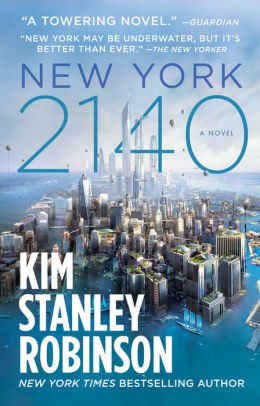Two weeks ago, I wrote about the relationship between science fiction and the historical profession. Science fiction writers such as Isaac Asimov, and scholars such as W.E.B. Du Bois, have used an intriguing interplay between speculative fiction and history to talk about the past, present, and future. Today I want to focus on two authors in particular: Kim Stanley Robinson and Octavia Butler (1947-2006). Both authors have used science fiction to talk about problems in modern day society, often to critical acclaim. What makes the writings of Robinson and Butler intriguing is that the issues they’ve written about are all too relevant today.
Much has been made online about the fact that Octavia Butler used the phrase “Make America Great Again” in her novel Parable of the Talents (1998). In that novel—which won a prestigious Nebula Award for best science fiction novel of 1998—the United States is experiencing multiple crises brought on  by climate change, domestic discord, and the rise of a virulent religious fundamentalism. For Butler, science fiction offered an opportunity not only to dream of better worlds, but to warn of dangerous futures. For her history was a continuous struggle for justice and freedom, shown not only in her works about the future but in arguably her best-known novel, Kindred
by climate change, domestic discord, and the rise of a virulent religious fundamentalism. For Butler, science fiction offered an opportunity not only to dream of better worlds, but to warn of dangerous futures. For her history was a continuous struggle for justice and freedom, shown not only in her works about the future but in arguably her best-known novel, Kindred
(1979). An African American woman is transported back to the antebellum South to live through the brutality of slavery.
Much more can be written about Butler—indeed, several essays at Black Perspectives have also put Butler in the context of science fiction and trends in African American literature. What I want to remark on here is that Butler thought deeply about America’s future by considering America’s past, and the many ways in which progress has been stalled or even reversed. The specter of the environment and potential catastrophe also hangs over Butler’s work—which puts it in conversation with Kim Stanley Robinson.
Kim Stanley Robinson, like Octavia Butler, approaches thinking about the future by considering the lessons of the past and the present. His Mars trilogy of the early 1990s featured characte rs who went to Mars to start a new society, breaking away from the problems and the history of Earth in the process. His 2312, as I noted in a post here two years ago, places China at the center of global affairs. His newest novel, New York 2140,
rs who went to Mars to start a new society, breaking away from the problems and the history of Earth in the process. His 2312, as I noted in a post here two years ago, places China at the center of global affairs. His newest novel, New York 2140,
considers what the great metropolis will look like after centuries of climate change and demographic change. Like Butler—and indeed, so many science fiction writers—Robinson does not assume American supremacy in the future. Nor does he necessarily assume an apocalypse, but he does see dramatic change that will humble the nation.
As more doom and gloom proclamations come from pundits about America’s future—a tradition that stretches back to the dawn of the American Republic—we would do well to consider how science fiction writers think about America’s future. Certainly, the writers of the various Star Trek television shows have given us an American future that is, at best, a mixed bag. For Butler, the future is imagined as a painful transition to an uglier, more brutal America. For Robinson, it will be a nation forced to confront its own ecological limits. But for both, it is an America that will seem strangely familiar to our early twenty-first century eyes.

0